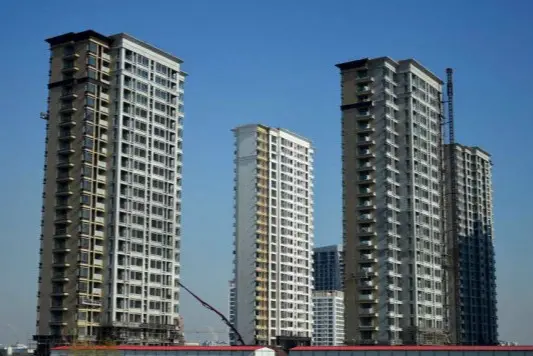The eastern Chinese city of Nanjing has introduced a “lottery” system for land sales, the first of its kind on the mainland, as land-hungry developers jostle for plots in a red-hot property market.
In a state-dominated market where a single land deal can easily be worth billions of yuan, local governments in major cities, the landowners, are reaping a windfall as property developers rush to bid for plots at prices that were unimaginably high only a few months ago.
It’s raising concerns that the property market is accumulating bubbles that will eventually burst. Both land and home prices are soaring in China’s top cities like Shanghai and Shenzhen, as well as in provincial capitals like Nanjing in Jiangsu province and Hangzhou in Zhejiang province.
The municipal authorities in Hangzhou have tripled their revenues from selling land in the first eight months year on year, while land revenues for authorities in Suzhou, Hefei, Wuhan, Zhengzhou, Shenzhen and Ningbo all doubled in the same period, according to data from Centaline Property.
On a nationwide basis, fiscal revenues from land sales surged 14 per cent to 2 trillion yuan (HK$2.3 trillion), according to finance ministry data.
“Developers turned to second-tier cities like Nanjing when land supply became scarce in top cities like Shanghai,” said Xia Dan, a senior researcher at Bank of Communications.
“Such zeal to vie for the [most expensive property] could be problematic if home prices started to fall. It could be very ugly.”
The supply of land for property development in China is monopolised by municipal governments. While these governments go through the motions of trying to curb the excessive rise in prices – Nanjing introduced “ceiling prices” last month – local governments are actually the biggest beneficiaries of high land prices.
Nanjing kicked off a four-day land auction for 27 land parcels on Monday, and if there were more than two bidders willing to pay the ceiling price, a lottery system was used to decide who would get the land.
By Wednesday, 14 out of 18 land parcels had hit the price ceiling after heated bidding – one plot went through 182 rounds. The 18 parcels have already brought 40.5 billion yuan into the local government treasury. The remaining nine land plots, which were to be available for bidding on Thursday morning, are expected to generate similar enthusiasm.
Frank Wang, vice-chairman of the China Builder Ratings Association, said a cocktail of excessive money-printing by China’s central bank, limited alternative investment options and monopolised land supply made buying properties a sure bet for developers.
“The thirst for land is growing among developers as home prices in main cities rise,” Wang said. “Meanwhile, there are just no other viable investment options to accommodate the excessive liquidity, apart from the property market.”
Data from the National Bureau of Statistics showed that real-estate-development investment rose to 6.4 trillion yuan in the first eight months, up 5.4 per cent from a year earlier. The pace was 0.1 percentage point higher than that seen in the first seven months.
Average new home prices in 70 major cities climbed 9.2 per cent last month from a year ago, accelerating from July’s 7.9 per cent rise, according to Reuters calculations based on data from the statistics bureau on Monday.
(SOUTH CHINA MORNING POST)
 简体中文
简体中文

